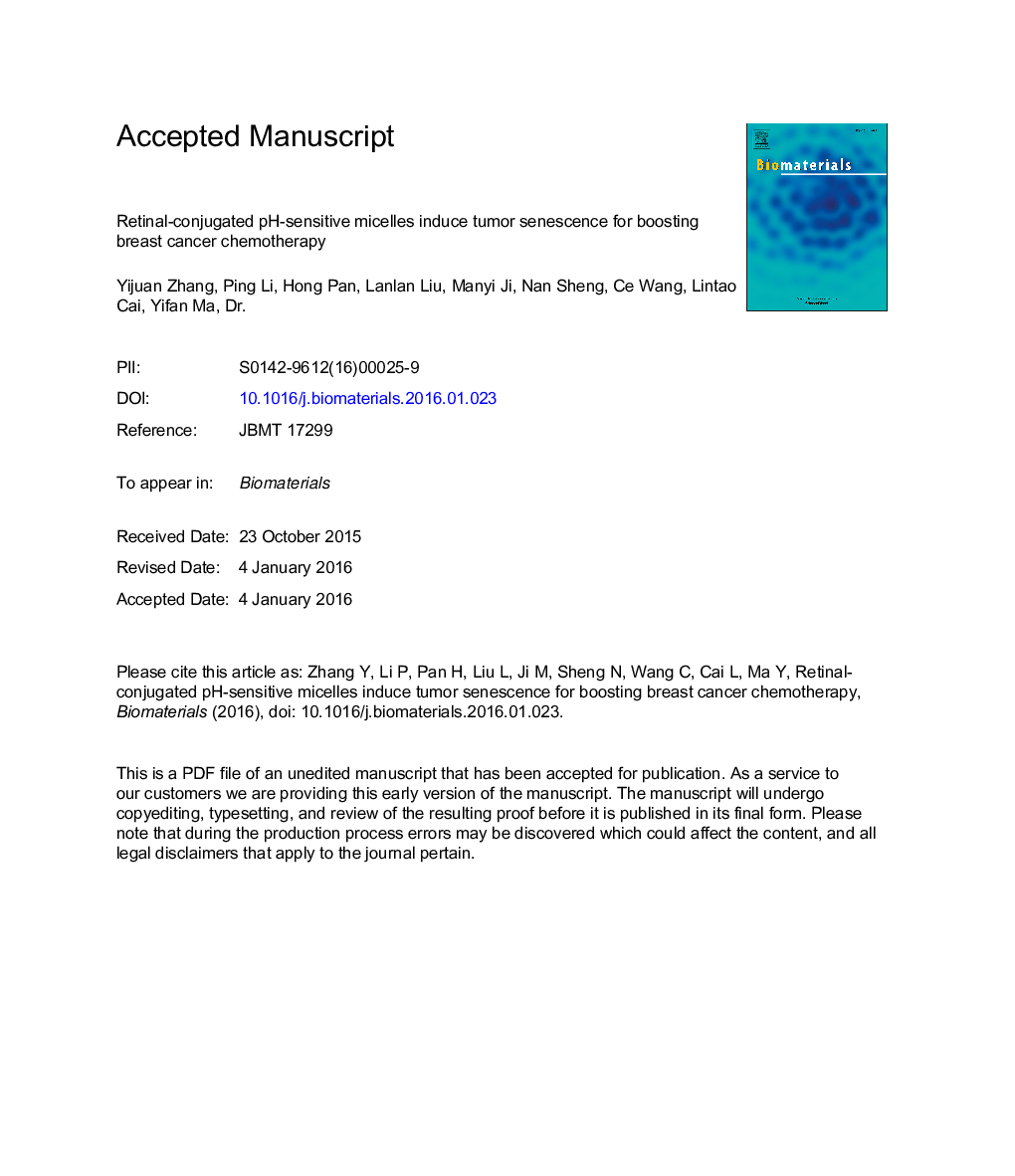| Article ID | Journal | Published Year | Pages | File Type |
|---|---|---|---|---|
| 6485148 | Biomaterials | 2016 | 40 Pages |
Abstract
Evoking tumor cellular senescence, an irreversible status of cell growth quiescence, has been recently proposed as a potential strategy to improve the efficacy of cancer treatment. In the current study, all-trans retinal, the precursor of all-trans retinoic acid, was conjugated to dextran via hydrazone bond to generate amphiphilic dextran-retinal (DR) conjugates, which self-assembled into pH-sensitive DR micelles. Our results showed that DR micelles moderately inhibited MCF-7 breast cancer cell growth through inducing p21-associated cellular senescence, which relied on retinoic acid receptors (RARs) and was accompanied by significant G0/G1 cell cycle arrest. Moreover, DR micelles were capable of encapsulating doxorubicin (DOX) to generate DOX-loaded DD micelles, facilitating the uptake and release of DOX in cancer cells. Compared with free DOX, DD micelles more effectively suppressed tumor growth and prolonged survival time of mouse xenograft model through inducing tumor apoptosis and cellular senescence. However, blocking cellular senescence diminished DD-caused apoptosis in MCF-7 cells by 40-50%. Therefore, pH-sensitive DR micelles not only served as a potent platform for DOX delivery, but also enhanced the anti-tumor effect of DOX by inducing tumor cellular senescence. These data reveal a great potential of evoking tumor senescence with retinal-conjugated micelles for boosting breast cancer chemotherapy.
Related Topics
Physical Sciences and Engineering
Chemical Engineering
Bioengineering
Authors
Yijuan Zhang, Ping Li, Hong Pan, Lanlan Liu, Manyi Ji, Nan Sheng, Ce Wang, Lintao Cai, Yifan Ma,
